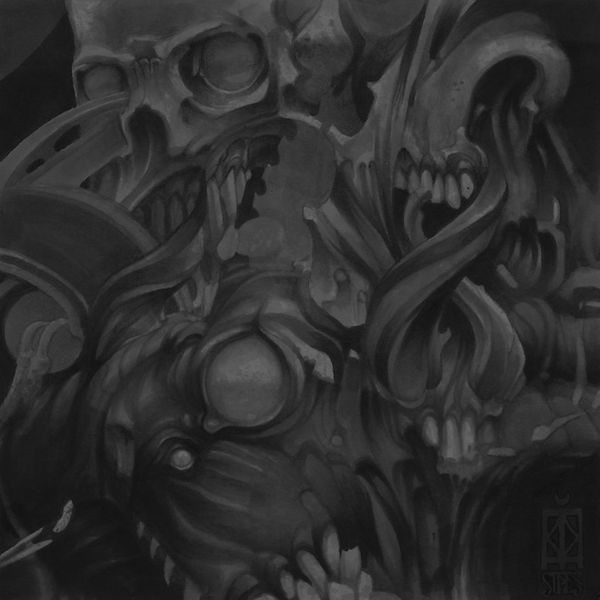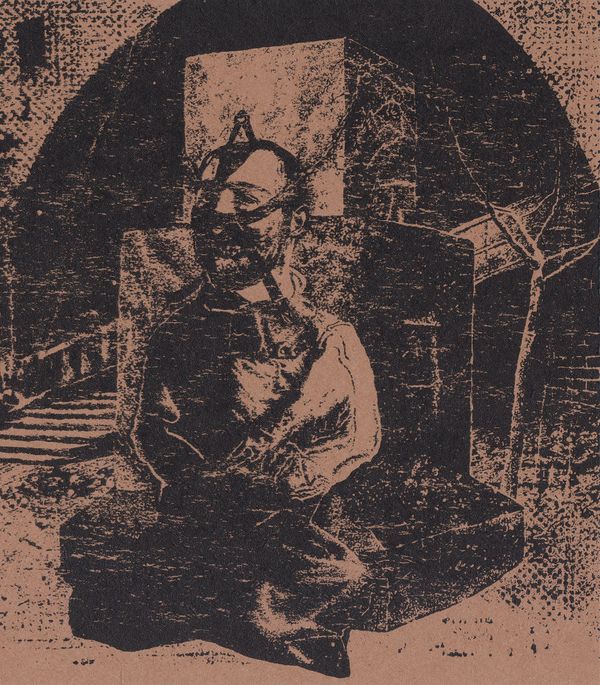Spook the Horses: Rainmaker
Spook the Horses: Rainmaker
Revered New Zealand guitar bands like the Dead C, Bailter Space, or High Dependency Unit (HDU) carved indelible grooves into the musical landscape because they took creative risks. However, despite the influence of bands like those, the New Zealand rock scene is still littered with unimaginative and risk-averse bands.
Don’t get me wrong. There are New Zealand rock bands making a lot of fantastic and highly creative noise––but you have to search for them. It’s not often a band like Wellington-based post-hardcore outfit Spook the Horses comes along. A band willing to take risks in pursuit of a greater artistic goal, as they’ve done on their sophomore album, Rainmaker.
Back in 2011, when Spook the Horses released their debut full-length, Brighter, there wasn’t much about the album you could call risky. *Brighter *sat at that familiar crossroad where post-rock, metal, and hardcore meet. It duly featured a lot of undulating and enjoyable heavy rock, with the expected counterpointing of heavyweight passages and ambient atmospherics. But *Rainmaker *finds Spook the Horses in a much more intriguing creative position.
For a start, *Rainmaker *features more strings, horns, synth, and varied vocals, and the album is bleaker and broader in tone than Brighter. Spook the Horses have also supplemented, and often entirely dispensed with, those previous counterpointed dynamics by adding more nuance and mercurial shadings. Those changes see Spook the Horses stamping their own personalised sigil on Rainmaker, and becoming a more individual band in the process.
A great example of that creative change is found on the tracks “Drought” and “Flood”. These two tracks off Rainmaker draw closest to the heaviest moments found on Brighter. Both songs are clearly going to be live favourites, with their propulsive percussion and gargantuan riffs. But the crucial element to their success is that they’re punchier and shorter than anything found on Brighter.
More accurately, “Drought” and “Flood” are stripped to muscle––and that’s an attribute you could apply to many of Rainmaker’s tracks. The songs on the album are stronger than Spook the Horses’ previous endeavours because the band have torn away the flesh of their previous influences. Leaving tracks that are more, well, distinctly Spook the Horses.
Rainmaker’s songs are tighter, but also broader, infused with that sense of taking risks as the band search for their own voice. There’s still room for a few serpentine sojourns, leading to explosive crescendos. But no time is given over to any extraneous wandering. Importantly, that leaves little space for the listener’s attention to wander. And a more direct Spook the Horses is a more interesting band.
Spook the Horses still retain strong elements from the post-rock tradition in their exploration of timbre and texture on Rainmaker. But they’ve avoided painting themselves into a corner because they’re also exploring new musical terrain. *Rainmaker *steps away from the close-packed sound that Spook the Horses’ trio of guitars provided on their debut. And a more resonant style of songwriting emerges.
Songs are not only built from hulking slabs of sound, as before. And with the emphasis taken off the wall-of-noise pursuits, everything is more finely detailed and clearer in the mix. Best of all, rather than lessening Rainmaker’s impact, those changes mean that the appearance of heavier sections feels more dramatic.
The genius of Rainmaker is found in those moments where Spook the Horses upend the expected. Where nuance intertwines with a novel approach. Like when the angular, six-string jangle on “Saboteur” is transformed by a menacing framework of bass and drums, and then delicate keyboards rise through the mix. Or when the melancholic mood evoked by the heartbreaking instrumentation on “The Saint” feels weightier because of the song’s spaciousness, and because Spook the Horses allow the song to drift in the current, without a snaggle-toothed riff to disrupt its flow.
Tracking Rainmaker live in Wellington, and then having the album mastered in Stockholm by renowned engineer Magnus Lindberg (Cult of Luna) was clearly a wise move. Because, technically, Rainmaker sounds spectacular. Still, it’s the feel that matters most here. That sense of desolation heard in the guitars, strings, and crestfallen vocals on “Below Our Time”. That thread of warmth found in the more ambient tumble of “Overburden”. That visceral, driving impetus of “Footfall”. Or those beautifully icy and coruscating guitars on “Widening”.
Know this: Spook the Horses have crafted a series of mesmerising hymns on Rainmaker. The mix of ruminative and picturesque passages––and those heads-down, heaving riffs––will have enormous appeal for aficionados of adventurous music.
However, for all the album’s compositional strengths, one of Rainmaker’s finest features has to be Spook the Horses’ decision to reduce the density of their sound*. That was, unquestionably, a risky manoeuvre. But Spook the Horses haven’t sacrificed anything by doing just that. Far from it––they’ve expanded and explored the parameters of their music, and shown a leap in creative prowess. And by adjusting the dimensions and weight of their sound, *they’ve injected far more individuality into their music.
Let’s not forget, Spook the Horses have shown significant courage in making aesthetic and sonic changes that clearly challenge them while pushing their creative ideas forward on Rainmaker. That’s the kind of act that allows a band to carve out those grooves on the landscape. That’s exactly why *Rainmaker *is such a phenomenal album. And that’s exactly why Spook the Horses are now a far more captivating band than ever before.
Spook the Horses @Bandcamp
Spook the Horses @Facebook
Spook the Horses @Offical Website.




